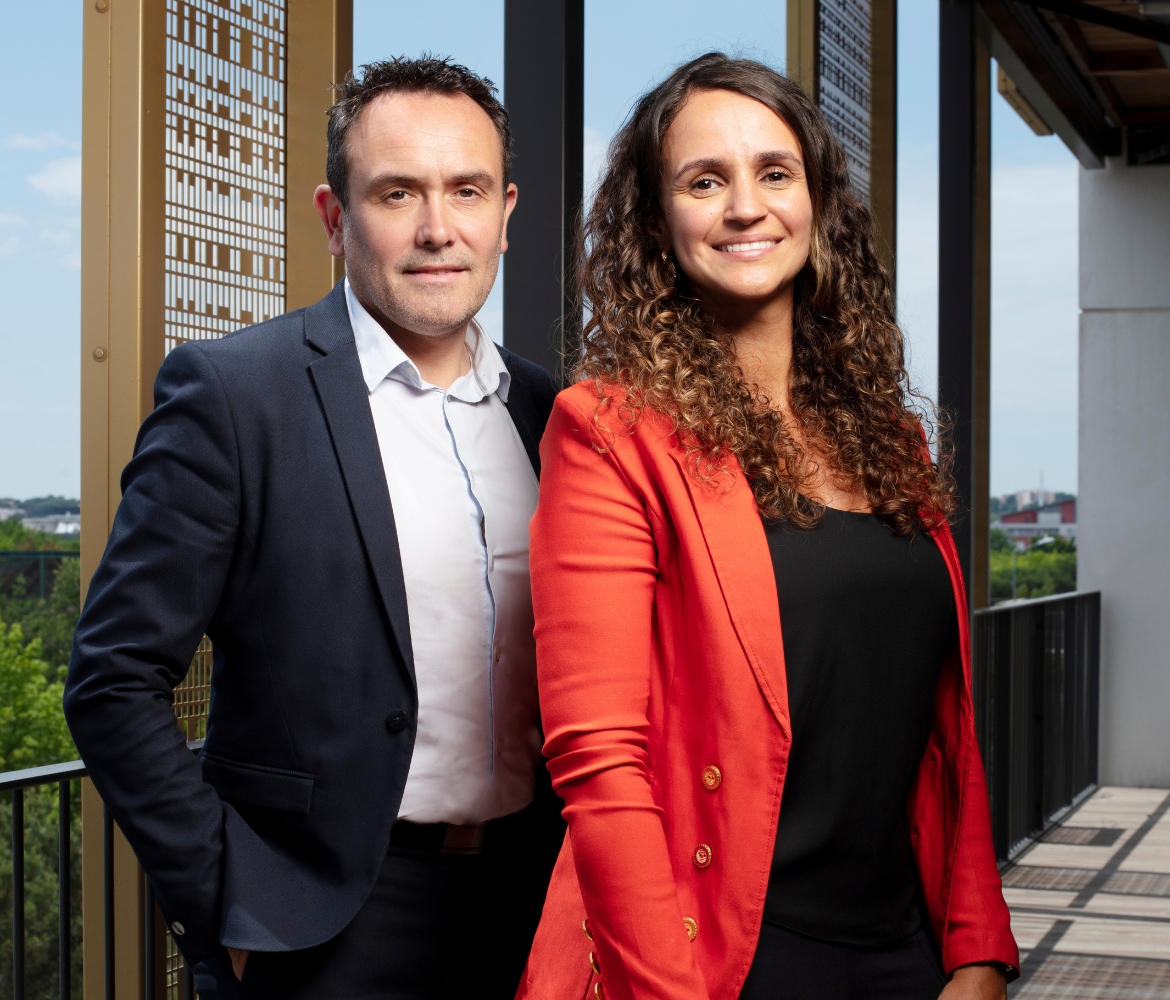Beyond boundaries

Dominique Palanque
Aerospace Technical Direction
Elaine Zadre
Business Development Direction at ALTEN
The past decade has seen a resurgence of interest in the space sector and the technologies it embraces. In addition, the emergence of private players has reshuffled the deck in a sector once reserved for governments.
Does the concept of New Space signal a new era in the aerospace sector?
DP: Indeed, the concept of New Space has injected new life into the sector. This term describes a dynamic movement – a break with traditional models of the space industry and its applications. New Space is characterized by a more commercial approach, focused on innovation and accessibility.
EZ: One of the main features of New Space is the growth of private enterprise in this sector. Companies like SpaceX, Blue Origin and Rocket Lab have emerged as key innovative players, challenging traditional government space agencies. These private companies have brought a breath of fresh air to the industry, focusing on efficiency, cost reduction and equipment reuse.
DP: The new players are also democratizing the access to space. Whereas previously, only large government agencies had the means to launch satellites and conduct space missions, New Space has opened the door: small companies, start-ups and even universities can now design, build and launch satellites at an affordable cost. This has led to an explosion of innovative concepts and entrepreneurship in the space industry. ALTEN was able to detect major changes in the economic and technological contexts early on, and we are proud to actively support these new projects.
What are the main developments today in the space sector?
DP: We’re seeing three main trends. The first is a significant increase in satellite launches fueled by growing demand for global connectivity. Companies like SpaceX and OneWeb are deploying satellite constellations to bring broadband Internet access to previously underserved regions. Space and satellite technology has become the invisible foundation of our digitalized world.
The second trend is a renewed interest in space exploration. Space agencies and private companies are investing heavily in missions to explore the Moon, Mars and beyond. We are at the dawn of a new era of crewed space exploration, with projects such as NASA’s Artemis and SpaceX’s Starship.
Finally, New Space has fostered the development of new business models in space tourism. Companies like Virgin Galactic have adopted an approach based on suborbital flights, offering tourists the chance to experience zero gravity and admire the view of Earth from space without leaving the Earth’s orbit. Zephalto has a similar commercial approach, using crewed stratospheric balloons. In addition, companies such as Axiom Space have announced plans to build private space modules attached to the International Space Station, offering tourists the opportunity to be onboarded.
What are the technologies that are contributing to the development of the space sector?
DP: The application of innovative technologies is key to New Space. Companies are exploiting advances in fields such as electric propulsion, artificial intelligence (AI), nanotechnology and advanced materials to push back the boundaries of feasibility. ALTEN is involved in these technological advances, which enable bolder missions and more frequent launches at lower costs.
The use of AI, neuronal networks and machine learning is becoming increasingly widespread in the space industry. These technologies can be embedded onboard satellites to process and analyze large quantities of data. Direct applications could include improved weather forecasts, inputs for scientific research, or optimization of space operations.
Finally, new technologies have increased our knowledge of changes in the Earth’s environment. Data on climate trends, melting glaciers, rising sea levels and greenhouse gas emissions have contributed to more accurate modeling, enabling the prediction of future impacts and improving our understanding of the mechanisms behind climate change.
Would you say that the advancement of the space industry is at the heart of the development of our societies?
EZ: Yes, exactly. We’re witnessing a paradigm shift in the way we think about space. More than just scientific exploration, the space industry has become a real economic driver.
Communication satellites, imaging services and space-based applications are essential to our daily lives. And thanks to innovations such as the ones Dominique has mentioned, the space sector is opening the way to new possibilities and significant advances in the observation and exploration of our world.


